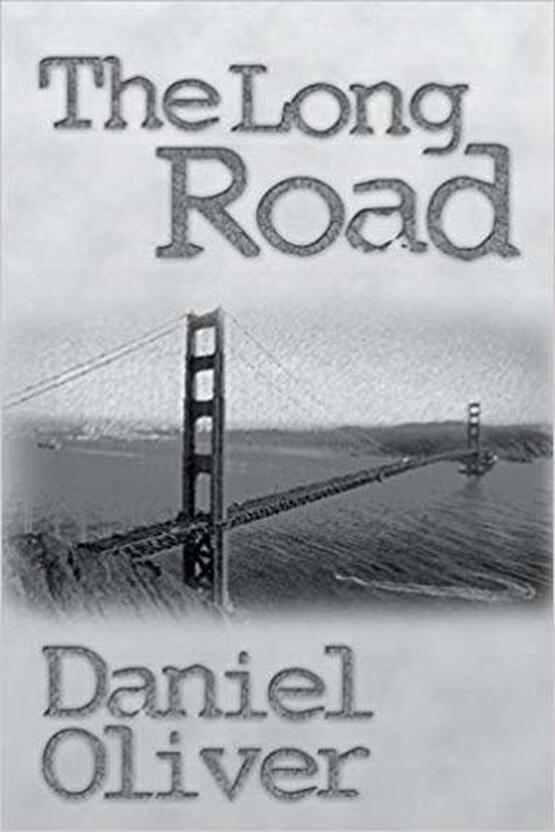|
I just finished reading "The Long Road," a novel by Daniel Oliver chronicling a bright, ambitious young man's struggle with mental illness. This book is good, it's powerful, a page-turner. And yet what makes the novel so compelling is the eloquent yet matter-of-fact style in which it's told, its lack of unnecessary flourish, the seeming normalness of the main character's life, a life lived as much on the surface of daily events as everyone else's until suddenly one day it isn't. The story is realistically narrated in the first person by the protagonist, a hard-working engineering student named Hank Galloway who is back in school in his mid-20's after leaving a budding finance career in Charlottesville, North Carolina and moving to California with aspirations of working for NASA after he finishes his studies. The opening scene of the book finds Hank speeding down the California freeway in the middle of the night, breathless with anxiety and mental confusion that land him, against his will, in a psychiatric ward. The reader then follows the journey that began that night on a dark highway as Hank attempts to carry on with his life and achieve his goals burdened with a mental illness that his doctors and therapists seem unable to diagnose and that Hank tries to deny and ignore as it lies dormant until it attacks suddenly, wreaks havoc on his studies and relationships and pulls his goals further from his reach. The character's road to recovery will be indeed a long one requiring, among other things, learning to accept that his chronic illness, though one of the mind, is an illness all the same that needs to be acknowledged, accepted and attended to with the same vigilance and care as would a chronic physical ailment. Hank also realizes that he must scratch the surface of his relationship with his controlling, abusive father and his submissive mother in order to come to terms with his illness. The story likewise delves into the phenomenon that even abused children usually nevertheless retain their relationship with their parents as adults, not psychologically separating their desire for their parents' love and acceptance from the abuse they suffered during their childhood at their parents' hands. “The Long Road” gets into the weeds and details of living with a mental illness, of psychiatric treatment in a hospital ward and long term treatment with medication and therapy. The author, who drew his inspiration for his novel from his experience as a physician assistant in a psychiatric ward and his own struggles with mental illness, knows his subject well. In truth we all live in our minds and ultimately we all see and hear not what our eyes and ears tell us, but what our minds tell us. And so an unwell mind can twist and skew one's thinking, one's perception of reality and relationships of all kinds: physical and spacial, societal and personal. "The Long Road" is not one young man's story; rather it is the story of many millions, and well-told. With mental illness so prevalent – yet often misunderstood - among the population I would recommend this book as required reading for everybody. "The Long Road" By Daniel Oliver is available on Amazon https://www.amazon.com/Long-Road-Daniel-B-Oliver-ebook/dp/B079V5STM9/ref=sr_1_1?ie=UTF8&qid=1532029125&sr=8-1&keywords=the+long+road+daniel+oliver
0 Comments
Leave a Reply. |
"Tropical Depression"
by Patti Liszkay Buy it on Amazon: https://www.amazon.com/dp/B0BTPN7NYY "Equal And Opposite Reactions"
by Patti Liszkay Buy it on Amazon: http://amzn.to/2xvcgRa or from The Book Loft of German Village, Columbus, Ohio Or check it out at the Columbus Metropolitan Library
Archives
July 2024
I am a traveler just visiting this planet and reporting various and sundry observations,
hopefully of interest to my fellow travelers. Categories |








 RSS Feed
RSS Feed